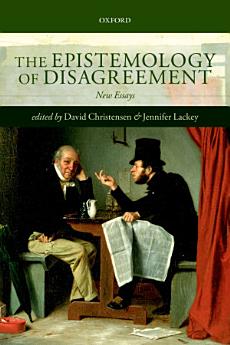The Epistemology of Disagreement: New Essays
Apr 2013 · OUP Oxford
e-Buku
288
Halaman
family_home
Layak
info
reportRating dan ulasan tidak disahkan Ketahui Lebih Lanjut
Perihal e-buku ini
The Epistemology of Disagreement brings together essays from a dozen philosophers on the epistemic significance of disagreement; all but one of the essays are new. Questions discussed include: When (if ever) does the disagreement of others require a rational agent to revise her beliefs? Do 'conciliatory' accounts, on which agents are required to revise significantly, suffer from fatal problems of self-defeat, given the disagreement about disagreement? What is the significance of disagreement about philosophical topics in particular? How does the epistemology of disagreement relate to broader epistemic theorizing? Does the increased significance of multiple disagreeing agents depend on their being independent of one another? John Hawthorne and Amia Srinivasan, Thomas Kelly, and Brian Weatherson all weigh in with attacks on conciliatory views or defenses of non-conciliatory approaches. David Christensen and Stewart Cohen take up the opposite side of the debate. Bryan Frances, Sanford Goldberg, and Ernest Sosa discuss a kind of disagreement that will be of particular concern to most readers of this book: disagreement about philosophy. And Robert Audi, Jonathan Kvanvig, and Jennifer Lackey tackle some general theoretical issues that bear on disagreement. The philosophers represented here include some who have contributed actively to the disagreement literature already, as well as some who are exploring the issue for the first time. Their work helps to deepen and expand our understanding of some epistemic phenomena that are central to any thoughtful believer's engagement with other believers.
Perihal pengarang
David Christensen is Professor of Philosophy at Brown University. He has written on such questions as: What determines whether a given bit of evidence supports or refutes a given theory? What logical principles apply to rational beliefs (either degrees of belief or all-or-nothing beliefs)? How should our theory of ideal rationality accommodate rational self-doubt-and in particular, to doubts generated by the disagreement of apparent epistemic peers? He is the author of Putting Logic in its Place: Formal Constraints on Rational Belief (2005, Oxford University Press). Jennifer Lackey is Professor of Philosophy at Northwestern University. Her recent research focuses on the epistemology of groups, the epistemology of testimony, norms of assertion, and the epistemic significance of disagreement. She has co-edited (with Ernest Sosa) The Epistemology of Testimony (2006, Oxford University Press) and is the author of Learning from Words: Testimony as a Source of Knowledge (2008, Oxford: Oxford University Press). She has been the recipient of a Charles A. Ryskamp Research Fellowship through the American Council of Learned Societies (2007-2008), as well as a Summer Stipend through the National Endowment for the Humanities. She is also a winner of the Young Epistemologist Prize (2005).
Berikan rating untuk e-Buku ini
Beritahu kami pendapat anda.
Maklumat pembacaan
Telefon pintar dan tablet
Pasang apl Google Play Books untuk Android dan iPad/iPhone. Apl ini menyegerak secara automatik dengan akaun anda dan membenarkan anda membaca di dalam atau luar talian, walau di mana jua anda berada.
Komputer riba dan komputer
Anda boleh mendengar buku audio yang dibeli di Google Play menggunakan penyemak imbas web komputer anda.
eReader dan peranti lain
Untuk membaca pada peranti e-dakwat seperti Kobo eReaders, anda perlu memuat turun fail dan memindahkan fail itu ke peranti anda. Sila ikut arahan Pusat Bantuan yang terperinci untuk memindahkan fail ke e-Pembaca yang disokong.







